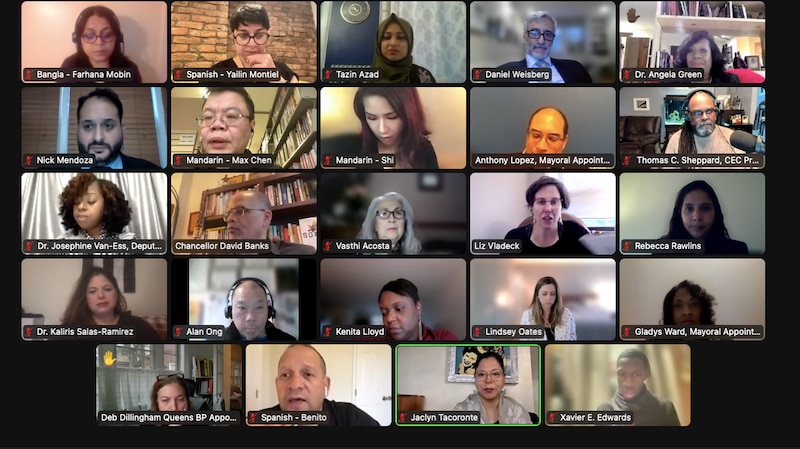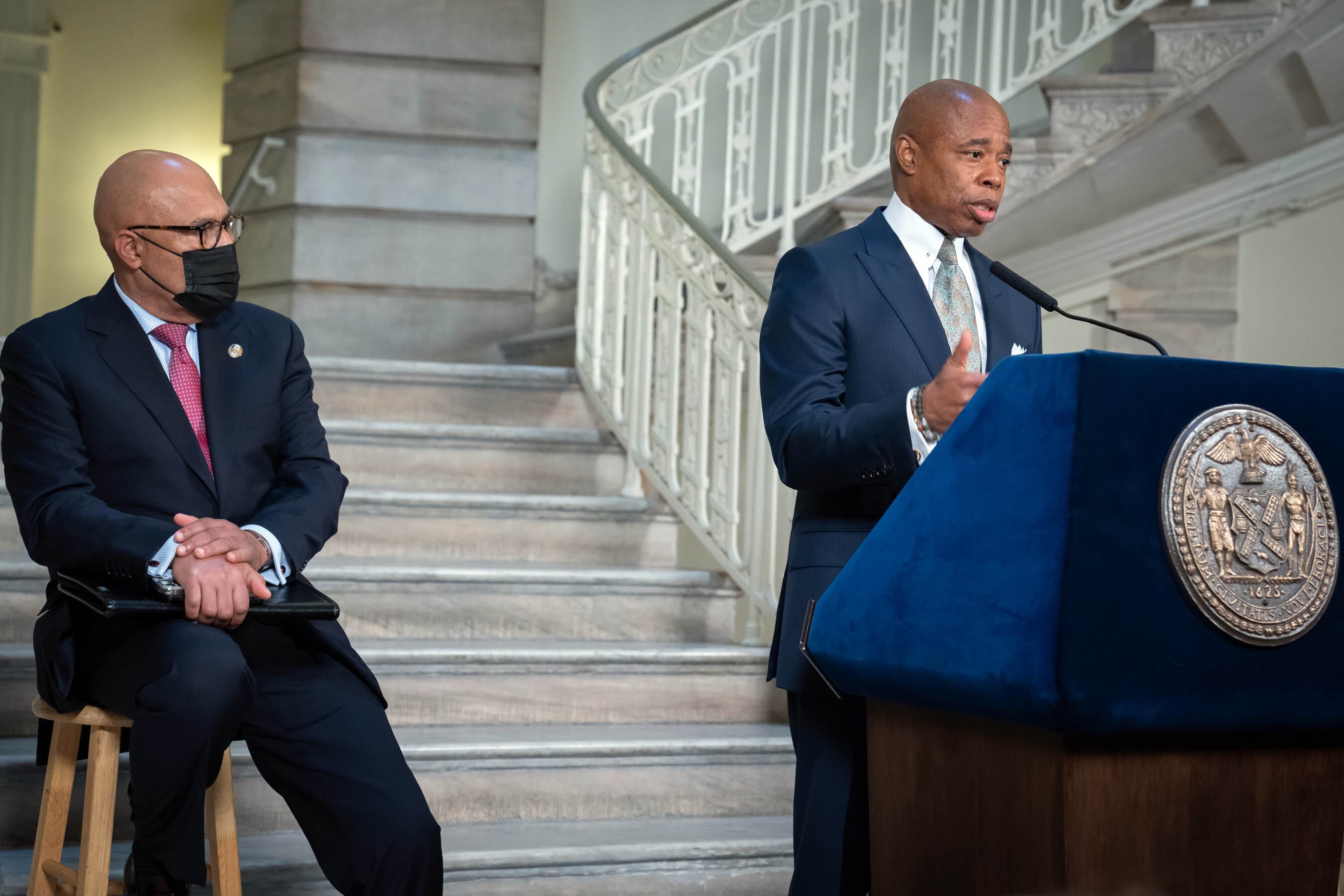Mayor Eric Adams has gotten off to a rough start with the Panel for Educational Policy.
Members during a virtual meeting on Wednesday rejected an $82 million contract to fund temporary staffing services for city schools. It was a remarkable and rare move for a panel designed to largely rubber-stamp the mayor’s agenda.
The failed contract comes after a series of missteps by the mayor related to the PEP, and amid scrutiny of the panel as the state legislature considers whether to extend the state law that gives New York City’s mayor broad authority over the nation’s largest school system.
The contract failed 6-5 with three abstentions. Everyone who voted in favor was a mayoral appointee. But two of the mayor’s own appointees played a role in voting down the contract: Member Tom Allon voted no, while Alan Ong abstained. And the panel is short one mayoral selection since Adams withdrew one person he had named, Rev. Kathlyn Barrett-Layne, after the New York Daily News revealed she had written that being gay is a sin and equated it to pedophilia.
The PEP is supposed to include 15 members, with nine appointed by the mayor.

Wednesday’s surprise vote was just the latest in a series of setbacks for the mayor when it comes to the PEP.
First, the mayor was late in naming his appointments to the panel, forcing a delay of their first meeting despite a state requirement that they meet monthly.
Next, the panel held their first meeting under Adams in February, casting votes on school policy issues — without the mayor disclosing publicly who he had been appointed.
Then, a day before Wednesday’s meeting, Adams finally unveiled his picks publicly — only to ask hours later for Barrett-Layne’s resignation. A spokesperson for City Hall said they had not been aware of the reverend’s writings.
In rejecting the staffing contract Wednesday night, panel members expressed a number of concerns, including that they didn’t have enough time to vet the contract thoroughly, and that not enough businesses had bid on the project.
“I have some serious issues about this process,” said panel member Tom Sheppard, who is not a mayoral appointee. He said he had asked for additional information about the contract, but “I received nothing until about maybe an hour and a half ago. And that in itself raises some serious concerns for me. It sets me up to have absolutely no time to scrutinize or even review in any sort of substantive way.”
The panel has been seen as playing a largely ceremonial role in approving the agenda of the mayor, who appoints a majority of members — and can remove them. Occasionally, mayors have moved to do just that.
But advocates have increasingly seen the PEP as one of the few places parents can claw back some decision-making power over the city’s schools — and hold the mayor accountable. In negotiating the future of mayoral control, some advocates seeking to curb mayoral control have called for changing how members are selected, the composition of the panel, or giving appointees more independence by instituting term limits.
“Part of the question about how to govern our public schools in New York City going forward is this question of what the role of the PEP should be, and how it should be constituted,” State Sen. John Liu, who chairs the New York City education committee, previously told Chalkbeat. “The mayor has all the cards, no matter who these appointees are, under the current system.”
Alex Zimmerman contributed.
Christina Veiga is a reporter covering New York City schools with a focus on school diversity and preschool. Contact Christina at cveiga@chalkbeat.org.





